- Home
- Robin Cook
Blindsight sam-1
Blindsight sam-1 Read online
Blindsight
( Stapleton and Montgomery - 1 )
Robin Cook
From Publishers Weekly
Cook's lack of ability as a stylist generally has been masked by his talent for fashioning a solid medical drama-often ripped from current headlines-that keeps readers turning pages. Unfortuately, that's not the case in his 12th novel (after Vital Signs), which has a plot so ludicrous that the weak characters and silly dialogue are all too obvious. Most offensive in the latter category are the stilted, out-of-kilter exchanges between a pair of Mafia hitmen who run about New York City "whacking" (murdering) people with increasing frequency. Meanwhile, Dr. Laurie Montgomery, a forensic pathologist in the NYC Medical Examiner's office, finds a pattern of unrelated cocaine overdose deaths among career-oriented people never known to have used drugs. Despite the obvious evidence that she's onto something, her boss couldn't care less, while the homicide detective she becomes involved with is more concerned about the mob killings, and, like her boss, cannot understand why she is outraged by the behavior of two corrupt, thieving uniformed cops in her department. As luck would have it, there's also another man in Laurie's life, a self-centered ophthalmologist whose patients just happen to include the mob boss behind both the cocaine deaths and the murder spree. Readers who plow through this amateurish effort will guess the ending long before any of the characters has a clue.
From Kirkus Reviews
An ironically revealing title for ophthalmologist Cook's fuzziest novel in years-an awesomely inept medical/crime thriller about a forensic pathologist up against the mob. As the story opens, the mind of one Duncan Andrews is "racing like a runaway train,'' his lethargy having "evaporated like a drip of water falling onto a sizzling skillet.'' Hours and several more clich‚s later, the "Wall Street whiz kid'' is dead of a cocaine overdose and lying on the autopsy table of generic Cook heroine (young, spunky, pretty doc) Laurie Montgomery, an N.Y.C. medical examiner. Days and several more dead yuppies later, Laurie is convinced that someone is flooding the upscale market with bad cocaine. Of course, no one will listen to her-not her boss, who wants to chill this political hot potato; not silver-tongued, gold- plated ophthalmologist Jordan Scheffield, who's wooing her with limos and swank dinners; not cop Lou Soldano ("a bit like Colombo''), to whom Laurie explains the exact difference between ophthalmologists, optometrists, and opticians and who wants to woo her with his sedan and spaghetti but can't match Jordan's glitz and anyway is busy worrying about the mob-related corpses stacking up next to the yuppies in Laurie's morgue. For meanwhile, in scenes stiff with clich, two mobsters are blowing away a seemingly random group of citizens on orders from mob kingpin Paul Cerino, who, Laurie learns, is one of Jordan's patients-and who deals coke. Laurie sleuths; the mobsters lock her in a coffin; Laurie sobs; the mobsters let her out; Laurie remembers the flammable properties of ethylene, handily within reach, and blows up the mobsters. Finally, Laurie dumps Jordan for Lou, and she and the cop talk about the motives behind the whole "horrid affair''-which owe more than a little to Coma. A slack and ragged retread, with Cook parodying himself in a tale that's about as stylish and suspenseful as an eye-chart.
Robin Cook
Blindsight
To David and Laurel
and Their New Life
together
Acknowledgments
I would like to thank the Dade County Medical Examiner’s Office for putting up with me for a week, and particularly Dr. Charles Wetli, whose patience talking with someone trained in Ophthalmology and Surgery instead of Forensic Pathology was extraordinary. I would also like to thank Dr. Charles Hirsch, Chief Medical Examiner for the City of New York, for his hospitality, and Dr. Jackie Lee for her willingness to share a glimpse into the more personal side of Forensic Pathology.
Last, but not least, I would like to thank Jean Reeds, whose intuitive sense of psychology makes her support, advice, and criticism inordinately valuable.
The cocaine shot into Duncan Andrews’ antecubital vein in a concentrated bolus after having been propelled by the plunger of a syringe. Chemical alarms sounded immediately. A number of the blood cells and plasma enzymes recognized the cocaine molecules as being part of a family of compounds called alkaloids, which are manufactured by plants and include such physiologically active substances as caffeine, morphine, strychnine, and nicotine.
In a desperate but vain attempt to protect the body from this sudden invasion, plasma enzymes called cholesterases attacked the cocaine, splitting some of the foreign molecules into physiologically inert fragments. But the cocaine dose was overwhelming. Within seconds the cocaine was streaking through the right side of the heart, spreading through the lungs, and then heading out into Duncan’s body.
The pharmacologic effects of the drug began almost instantly. Some of the cocaine molecules tumbled into the coronary arteries and began constricting them and reducing blood flow to the heart. At the same time the cocaine began to diffuse out of the coronary vessels into the extracellular fluid, bathing the hardworking heart muscle fibers. There the foreign compound began to interrupt the movement of sodium ions through the heart cells’ membranes, a critical part of the heart muscle contractile function. The result was that cardiac conductivity and contractility began to fall.
Simultaneously the cocaine molecules fanned out throughout the brain, having coursed up into the skull through the carotid arteries. Like knives through butter, the cocaine penetrated the blood brain barrier. Once inside the brain, the cocaine bathed the defenseless brain cells, pooling in spaces called synapses across which the nerve cells communicated.
Within the synapses the cocaine began to exert its most perverse effects. It became an impersonator. By an ironic twist of chemical fate, an outer portion of the cocaine molecule was erroneously recognized by the nerve cells as a neurotransmitter, either epinephrine, norepinephrine, or dopamine. Like skeleton keys, the cocaine molecules insinuated themselves into the molecular pumps responsible for absorbing these neurotransmitters, locking them, and bringing the pumps to a sudden halt.
The result was predictable. Since the reabsorption of the neurotransmitters was blocked, the neurotransmitters’ stimulative effect was preserved. And the stimulation caused the release of more neurotransmitters in an upward spiral of self-fulfilling excitation. Nerve cells that would have normally reverted to quiescence and serenity began to fire frantically.
The brain progressively brimmed with activity, particularly the pleasure centers deeply embedded below the cerebral cortex. Here dopamine was the principal neurotransmitter. With a perverse predilection the cocaine blocked the dopamine pumps, and the dopamine concentration soared. Circuits of nerve cells divinely wired to ensure the survival of the species rang with excitement and filled afferent pathways running up to the cortex with ecstatic messages.
But the pleasure centers were not the only areas of Duncan’s brain to be affected, just some of the first. Soon the darker side of the cocaine invasion began to exert its effect. Phylogenetically older, more caudal centers of the brain involving functions like muscle coordination and the regulation of breathing began to be affected. Even the thermoregulatory area began to be stimulated, as well as the part of the brain responsible for vomiting.
Thus all was not well. In the middle of the rush of pleasurable impulses, an ominous condition was in the making. A dark cloud was forming on the horizon, auguring a horrible neurological storm. The cocaine was about to reveal its true deceitful self: a minion of death disguised in an aura of beguiling pleasure.
Prologue
Duncan Andrews’ mind was racing like a runaway train. Only a moment ago he’d been in a groggy, drugged stupor. Within seconds his dizziness and lethargy had evaporated like a drip of water falling onto a sizzli
ng skillet. A rush of exhilaration and energy consumed him, making him feel suddenly powerful. It was as if he could do anything. In a glow of new clarity, he understood he was infinitely stronger and smarter than he’d ever realized. But just as he was beginning to savor this cascade of euphoric thoughts and this enlightened view of his abilities, he began to feel overwhelmed by intense waves of pleasure he could define only as pure ecstasy. He would have shouted for joy if only his mouth could form the proper words. But he couldn’t speak. Thoughts and feelings were reverberating in his mind too rapidly to vocalize. Any fear or misgivings he had been feeling only minutes ago melted in this newfound rapture and delight.
But like his torpor, the pleasure was short-lived. The blissful smile that had formed on Duncan’s face twisted into a grimace of terror and panic. A voice called out that the people he feared were returning. His eyes darted around the room. He saw no one, yet the voice continued its message. Quickly he looked over his shoulder into the kitchen. It was empty. Turning his head, he looked down the hallway toward the bedroom. No one was there, but the voice remained. Now it was whispering a more dire prediction: he was going to die.
“Who are you?” Duncan screamed. He put his hands over his ears as if to block the sound out. “Where are you? How did you get in here?” His eyes again raced searchingly about the room.
The voice didn’t answer. Duncan didn’t know it was coming from inside his head.
Duncan struggled to his feet. He was surprised to realize he’d been on his living room floor. As he rose, his shoulder bumped against the coffee table. The syringe that had so recently been in his arm clattered to the floor. Duncan stared at it with hatred and regret, then reached for it to crush it between his fingers.
Duncan’s hand stopped just short of the syringe. His eyes opened wide with confusion mixed with a new fear. All at once he could feel the unmistakable itch of hundreds of insects crawling on the skin of his arms. Forgetting the syringe, Duncan held out his hands with his palms up. He could feel the bugs squirming all over his forearms, but no matter how hard he searched he couldn’t see them. His skin appeared perfectly clear. Then the itch spread to his legs.
“Ahhhhhh!” Duncan screamed. He tried to wipe his arms, guessing the insects were too small to be seen, but the itching only got worse. With a shiver of profound fear it dawned on him that the organisms had to be under his skin. Somehow they had invaded his body. Perhaps they had been in the syringe.
Using his fingernails, Duncan began to scratch his arms in a frantic attempt to allow the insects to escape. They were eating him from within. Desperately he scratched harder, digging his nails into his skin until he drew blood. The pain was intense, but the itching of the insects was worse.
Despite the terror of the insects, Duncan stopped his scratching, as he became aware of a new symptom. Holding up his bloodied hand, he noticed that he was shaking. Looking down at himself he saw that his whole body was shaking, and the tremors were getting worse. For a brief instant he thought about calling 911 for help. But as the thought crossed his mind, he noticed something else. He was warm. No, he was hot!
“My God!” Duncan managed when he realized that sweat was pouring from his face. With a trembling hand he felt his forehead: he was burning up! He tried to unbutton his shirt but his tremulous hands were incapable. Impatient and desperate, he ripped the shirt open and off. Buttons flew in all directions. He did the same with his pants, throwing them to the floor. But it was to no avail; clad only in his undershorts, he still felt suffocatingly hot. Then, without a moment’s warning, he coughed, choked, and vomited in a forceful stream, spattering the wall below his signed Dali lithograph.
Duncan staggered into his bathroom. Through sheer force of will he got his shaking body into the shower and turned on the cold tap full force. Gasping for breath, he stood beneath the cascade of frigid water.
Duncan’s relief was brief. Involuntarily a pitiful cry escaped from his lips, and his breathing became labored as a white-hot pain stabbed into his left chest and ripped down the inside of his left arm. Intuitively Duncan knew he was having a heart attack.
Duncan clutched his chest with his right hand. Blood from his abraded arms mixed with water from the shower and swirled down the drain. Half-falling and half-staggering, Duncan stumbled from the bathroom and headed for the door of his apartment. Never mind that he was near naked, he needed air. His broiling brain was about to explode. Using his final reserve of strength, he gripped the knob to his front door and yanked it open.
“Duncan!” Sara Wetherbee cried. She couldn’t have been more startled. Her hand was poised inches from Duncan’s door. She had been about to knock when Duncan yanked it open and confronted her. He was clad in nothing but soggy Jockey shorts. “My God!” cried Sara. “What’s happened to you?”
Duncan did not recognize his lover of two and a half years. What he needed was air. The crushing pain in his chest had spread throughout his lungs. It felt as if he were being stabbed over and over again. Blindly he lurched forward, reaching out to sweep Sara from his path.
“Duncan!” Sara cried again as she took in his near nakedness, the bleeding scratches on his arms, his wild, dilated eyes, and the grimace of pain on his face. Refusing to be thrust aside, she grabbed his shoulders and restrained him. “What’s the matter? Where are you going?”
Duncan hesitated. For a brief moment Sara’s voice penetrated his dementia. His mouth opened as if he were about to speak. But no words came. Instead he uttered a pitiful whine that ended in a gasp as his tremors coalesced into spasmodic jerks and his eyes disappeared up inside his head. Mercifully unconscious, Duncan collapsed into Sara’s arms.
At first Sara struggled vainly to hold Duncan upright. But she was unable to support him, especially since Duncan’s jerks became progressively more violent. As gently as possible Sara let Duncan’s writhing body fall across the threshold, half into the hall. Almost the moment he touched the floor, Duncan’s back arched up and his jerks rapidly coalesced into the rhythmical throes of a grand mal seizure.
“Help!” Sara screamed as she glanced up and down the hall. As she might have expected, no one appeared. Aside from the noise Duncan was making, all she could hear was the percussive thump of a nearby stereo.
Desperate for help, Sara managed to step over Duncan’s convulsing and incontinent body. A glimpse of his bloody and foaming mouth appalled and frightened her. She desperately wanted to help, but she didn’t know what to do save for calling an ambulance. With a trembling finger she punched 911 on Duncan’s living room phone. As she impatiently waited for the connection to go through, she could hear Duncan’s head repeatedly thump against the hardwood floor. All she could do was wince with each sickening sound and pray that help would be there soon.
* * *
Pulling her hands away from her face, Sara checked her watch. It was almost three o’clock in the morning. She’d been sitting on the same vinyl seat in the waiting room of the Manhattan General Hospital for over three hours.
For the umpteenth time she scanned the crowded room that smelled of cigarette smoke, sweat, alcohol, and wet wool. There was a large sign directly opposite her that read: NO SMOKING, but the notice was roundly ignored.
The injured mixed with those who’d accompanied them. There were wailing infants and toddlers, battered drunks, others clutching a towel to a cut finger or slashed chin. Most stared blankly ahead, inured to the endless wait. Some were obviously sick, others even in pain. One rather well dressed man had his arm around his equally well dressed female companion. Only minutes before he’d been arguing heatedly with a rather intimidatingly large triage nurse who hadn’t been ruffled by his threats to call his lawyer if his companion were not seen immediately. Resigned at last, he too stared vacantly into the middle distance.
Closing her eyes again, Sara could still feel her pulse hammering at her temples. The vivid image of Duncan convulsing on the threshold of his apartment haunted her. Whatever happened tonight, she knew she w
ould never banish the vision from her mind.
After having called the ambulance and given Duncan’s address, Sara had returned to Duncan’s side. Somewhere in the back of her mind she’d remembered that something should be put in a convulsing person’s mouth to keep him from biting his tongue. But try as she might, she’d not been able to pry apart Duncan’s clenched teeth.
Just before the EMTs arrived, Duncan finally stopped convulsing. At first Sara had been relieved, but then she noticed with renewed alarm that he was not breathing. Wiping the foam and a bit of blood from his mouth, she tried to give him mouth-to-mouth resuscitation, but she found herself fighting nausea. By then some of Duncan’s hallway neighbors had appeared. To Sara’s relief, one man said he’d been a corpsman in the navy, and he and a companion graciously took over the CPR until the EMTs arrived.
Sara could not imagine what had happened to Duncan. Only an hour earlier he’d called her and had asked her to come over. She thought he’d sounded a little tense and strange, but even so she’d been totally unprepared for his state once she got there. She shuddered again as she saw him standing before her in the doorway with his bloodied hands and arms and his dilated, wild eyes. It was as if he’d gone insane.
Sara’s last glimpse of Duncan came after they’d arrived at the Manhattan General. The EMTs had allowed her to ride in the ambulance. Throughout the whole hair-raising trip, they’d maintained the CPR. The last she’d seen of Duncan was when he’d been rolled through a pair of white swinging doors, disappearing into the inner recesses of the emergency unit. Sara could still see the EMT kneeling on top of the gurney and continuing the chest compressions as the doors swung closed.
“Sara Wetherbee?” a voice asked, rousing Sara from her reverie.

 Shock
Shock Mutation
Mutation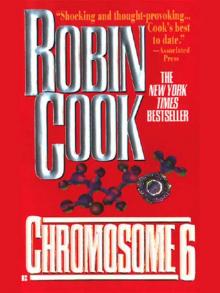 Chromosome 6
Chromosome 6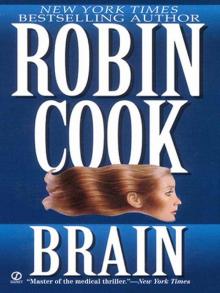 Brain
Brain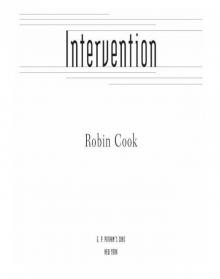 Intervention
Intervention Invasion
Invasion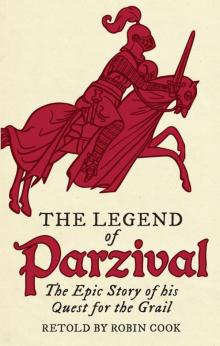 The Legend of Parzival: The Epic Story of His Quest for the Grail
The Legend of Parzival: The Epic Story of His Quest for the Grail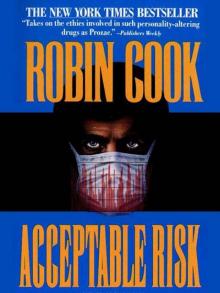 Acceptable Risk
Acceptable Risk Cell
Cell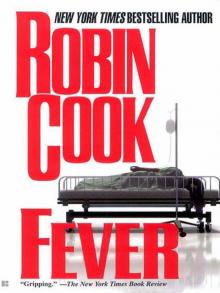 Fever
Fever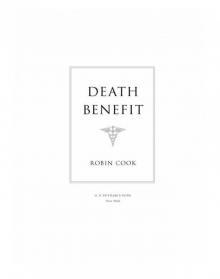 Death Benefit
Death Benefit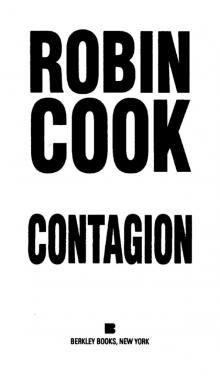 Contagion
Contagion Mindbend
Mindbend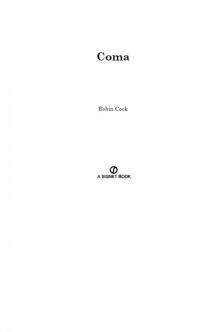 Coma
Coma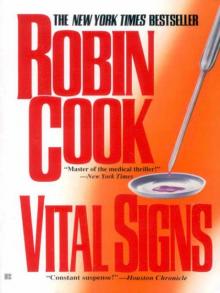 Vital Signs
Vital Signs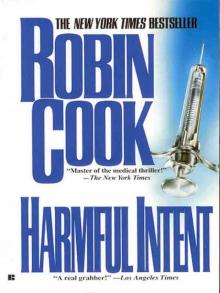 Harmful Intent
Harmful Intent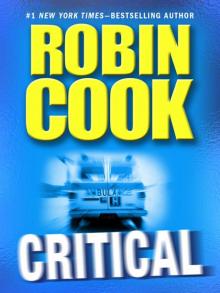 Critical
Critical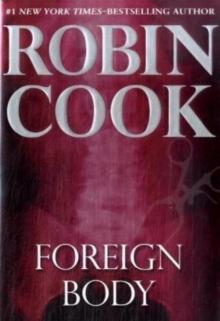 Foreign Body
Foreign Body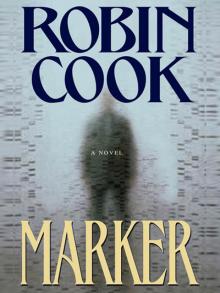 Marker
Marker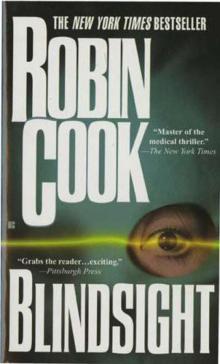 Blindsight
Blindsight Terminal
Terminal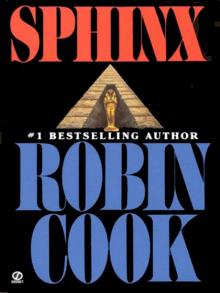 Sphinx
Sphinx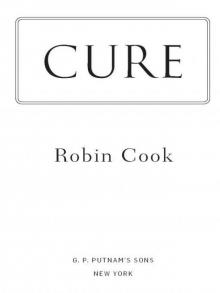 Fatal Cure
Fatal Cure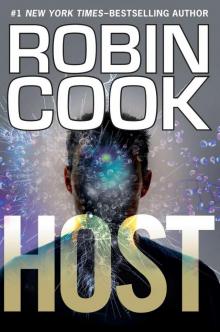 Host
Host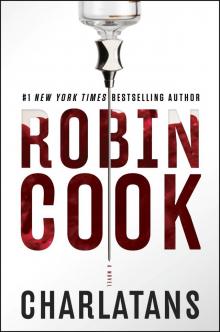 Charlatans
Charlatans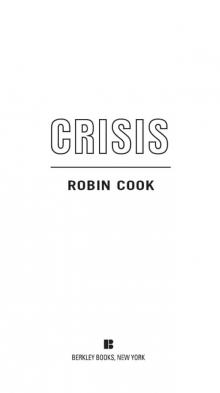 Crisis
Crisis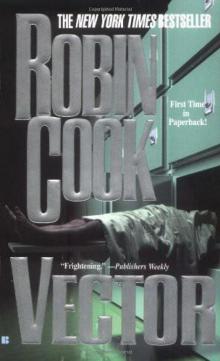 Vector
Vector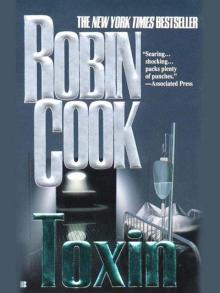 Toxin
Toxin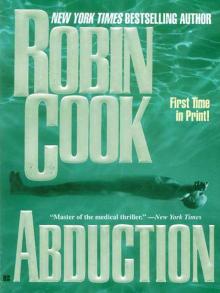 Abduction
Abduction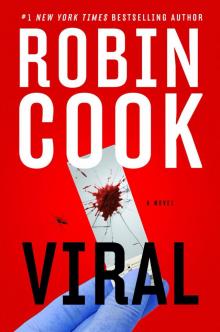 Viral
Viral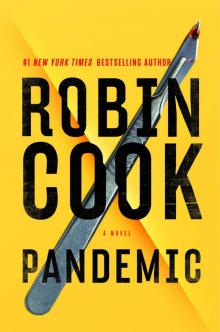 Pandemic
Pandemic Outbreak
Outbreak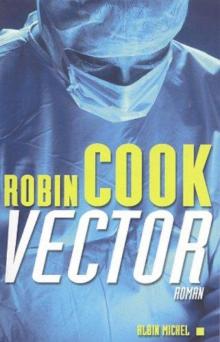 Vector js&lm-4
Vector js&lm-4 Godplayer
Godplayer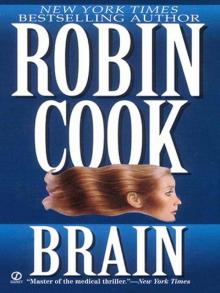 A Brain
A Brain Year of the Intern
Year of the Intern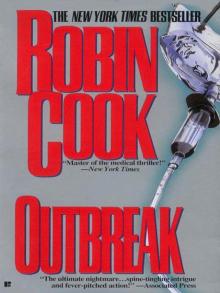 Outbreak dmb-1
Outbreak dmb-1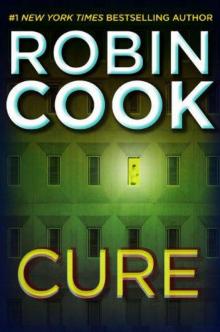 Cure
Cure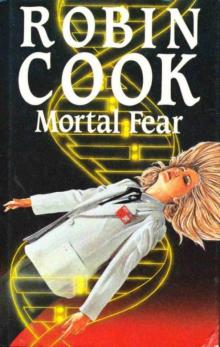 Mortal Fear
Mortal Fear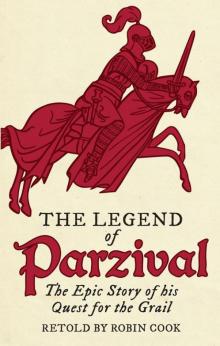 The Legend of Parzival
The Legend of Parzival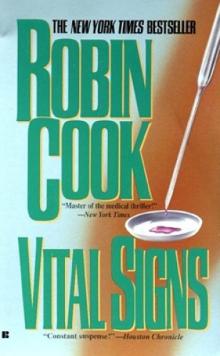 Vital Signs dmb-2
Vital Signs dmb-2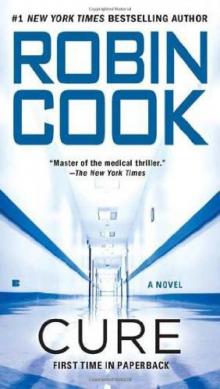 Cure (2010) sam-10
Cure (2010) sam-10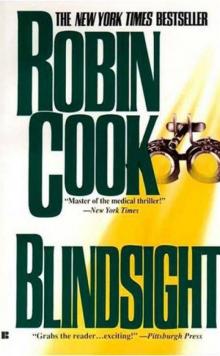 Blindsight sam-1
Blindsight sam-1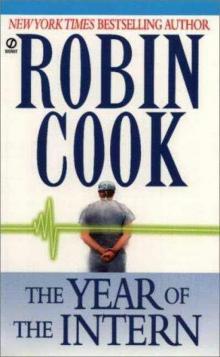 The Year of the Intern
The Year of the Intern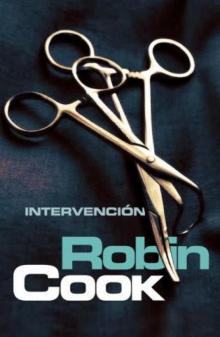 Intervention sam-9
Intervention sam-9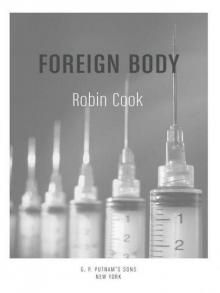 Foreign Body sam-8
Foreign Body sam-8